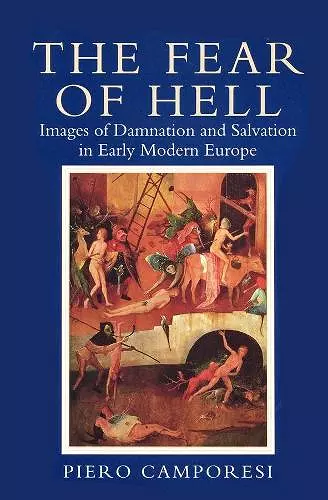Fear of Hell
Images of Damnation and Salvation in Early Modern Europe
Piero Camporesi author Lucinda Byatt translator
Format:Paperback
Publisher:John Wiley and Sons Ltd
Published:17th Jan '20
Currently unavailable, and unfortunately no date known when it will be back

The Fear of Hell is a provocative study of two of the most powerful images in Christianity—hell and the eucharist. Drawing on the writings of Italian preachers and theologians of the Counter-Reformation, Piero Camporesi demonstrates the extraordinary power of the Baroque imagination to conjure up punishments, tortures, and the rewards of sin.
Camporesi argues that hell was a very real part of everyday life during the sixteenth and seventeenth centuries. Preachers portrayed hell in images typical of common experience, comparing it to a great city, a hospital, a prison, etc.; the horror lay in the extremes to which these familiar images could be taken. The city of hell was not an ordinary city, but a filthy, stinking, and overcrowded place, an underworld ‘sewer’ overflowing with the refuse of decaying flesh and excrement—shocking but not beyond human imagination. What was most disturbing about this grotesque imagery was the realization by the people of the day that the punishment of afterlife was an extension of their daily experience in a fallen world.
The eucharist, or host, represented corporeal salvation for early modern Christians and was therefore closely linked with the imagery of hell, the place of perpetual corporeal destruction. As the bread of life, the host possessed many miraculous powers of healing and sustenance, which made it precious to those in need. When received properly, the host was a source of health and life both in this world and in the world to come, though for those who ate the host unworthily there was the prospect of swift retribution.
Written with style and imagination, The Fear of Hell offers a vivid account of themes central to Christian culture, whose influence can still be found in our beliefs and customs today.
‘This is an immensely stimulating work, vivid, full of ideas, offering suggestions that go well beyond its stricter subject matter. All scholars and students concerned with the ways the psyche has been shaped by the material doctrines of Christianity will want to read this book.’
Roy Porter, formerly director of the Wellcome Institute for the History of Medicine at University College, London
ISBN: 9780745610313
Dimensions: 229mm x 152mm x 18mm
Weight: 363g
232 pages